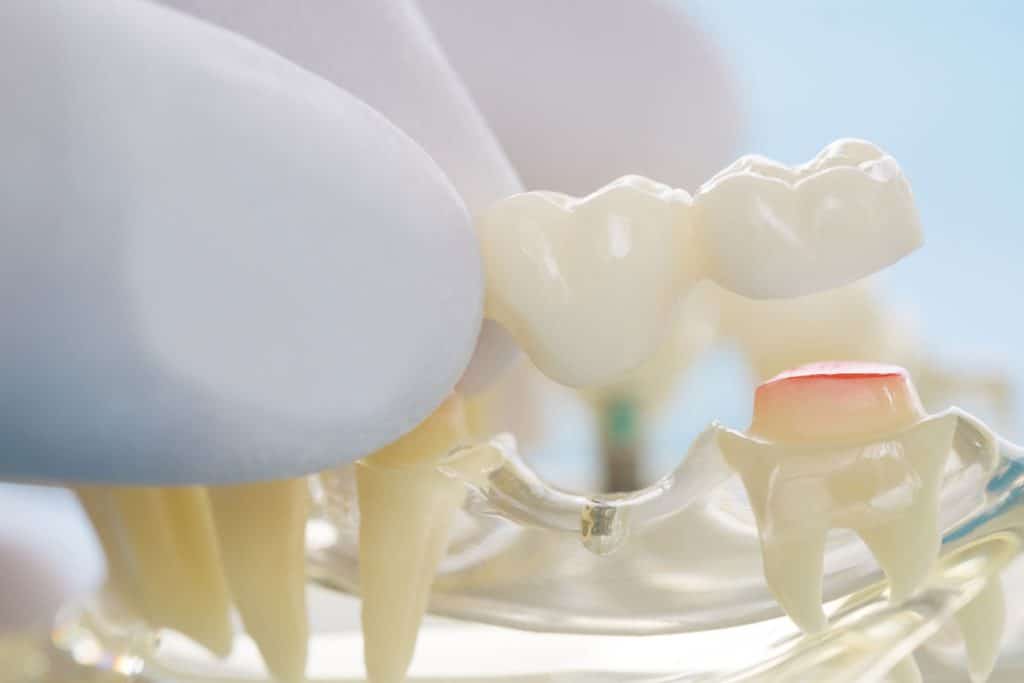How Long Do Dental Bridges Last?

Dental bridges are a reliable solution for replacing missing teeth, restoring both function and aesthetics to your smile. If you’re considering getting a dental bridge or already have one, you might be wondering about its longevity. Understanding the factors that influence the lifespan of dental bridges can help you make the most of this important dental restoration.
What are Dental Bridges?
Dental bridges are devices used to fill the gap left by one or more missing teeth. They consist of one or more artificial teeth, known as pontics, anchored in place by crowns placed on the adjacent teeth. These bridges help maintain the structure of your mouth and prevent your remaining teeth from shifting out of position.
Types of Dental Bridges
There are several types of dental bridges, each with its own specific application:
- Traditional Bridges are the most common type, involving crowns on either side of the pontic.
- Cantilever Bridges are used when there is only one natural tooth next to the missing teeth.
- Maryland Bridges utilize a metal or porcelain framework bonded onto the back of the adjacent teeth.
- Implant-Supported Bridges are similar to traditional bridges but are held in place by dental implants instead of natural teeth.
Factors Affecting the Lifespan of Dental Bridges
The longevity of dental bridges can vary based on several factors:
- Oral Hygiene: Maintaining good oral hygiene is critical for extending the life of a dental bridge. Daily brushing and flossing prevent plaque buildup and gum disease, which can undermine the supporting teeth and gums. Using a floss threader with floss or water flosser to clean under the part of the bridge with the missing tooth is the ideal approach to cleaning under the bridge.
- Diet: A diet high in sugars and acidic foods can increase the likelihood of decay, affecting the health of the supporting teeth.
- Materials: The materials used in the construction of the bridge, such as porcelain or metal alloys, can also influence its durability.
Average Lifespan of Dental Bridges
Typically, dental bridges last between 5 to 15 years, and with proper care and regular dental check-ups, many can exceed this range. Factors like the patient's oral hygiene, the materials used, and the bridge's location in the mouth play significant roles in determining its lifespan.
Signs Your Dental Bridge May Need Attention
It’s crucial to watch for signs that your bridge may need repair or replacement:
- Pain or Sensitivity in the area of the bridge could signal underlying issues.
- Visible Damage such as chips or cracks in the bridge should be addressed promptly.
- Looseness or Movement indicates that the bridge may not be properly supported.
Importance of Regular Dental Check-Ups
Regular visits to your dentist are essential for monitoring the condition of your dental bridge and ensuring it remains in good working order. Your dentist can identify potential issues early, saving you from more extensive dental work in the future.
Tips for Maintaining the Longevity of Dental Bridges
To maximize the lifespan of your dental bridge, consider the following tips:
- Practice Excellent Oral Hygiene by brushing twice daily and using floss with floss threaders or a water flosser to clean between your teeth and under the bridge.
- Choose a Balanced Diet with limited sugary and acidic foods to protect your overall oral health.
- Avoid Hard Foods that might damage your bridge, such as ice, hard candy, and nuts.
Frequently Asked Questions About Dental Bridges
How often should I have my dental bridge checked by a dentist?
It's recommended to visit your dentist every six months for routine check-ups and cleanings. This regular schedule allows your dentist to assess the condition of your dental bridge, ensuring it functions properly and doesn't require any adjustments or repairs. If you experience any issues or discomfort with your bridge, schedule an appointment immediately.
Can dental bridges affect the way I speak?
Initially, dental bridges may impact your speech slightly, particularly if you're adjusting to a new bridge. However, most patients adapt quickly, and any minor speech changes usually resolve as you get used to the bridge. Properly fitted bridges help maintain your natural speaking patterns by providing the necessary support to your oral structures. If speech issues persist, consult your dentist for adjustments or further evaluation.
Call Blossom Dentistry Today
If you have questions about dental bridges or need to schedule a check-up, Blossom Dentistry is here to help. Our team of experienced professionals is committed to maintaining your oral health and ensuring your dental restorations last as long as possible. Call us at 202-922-2900 to book an appointment today!
